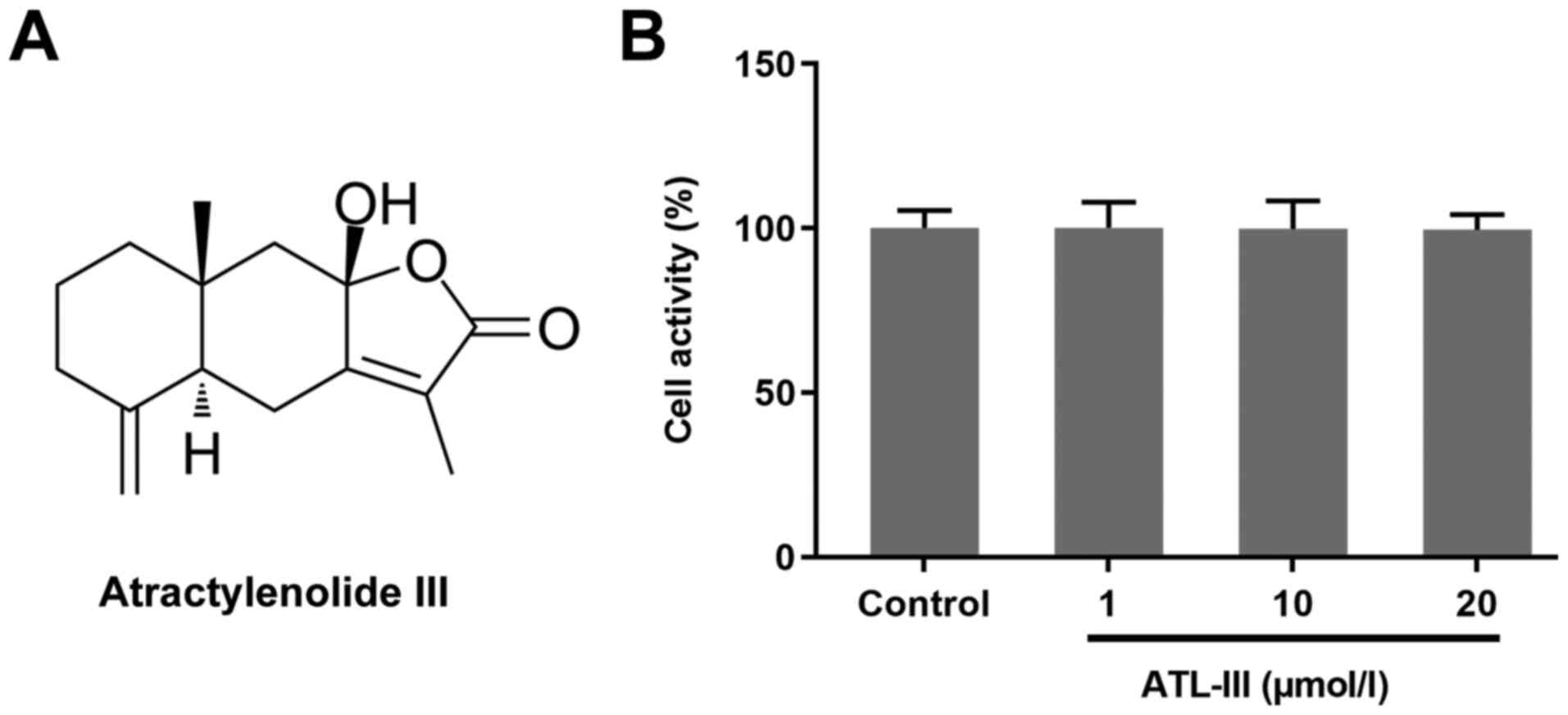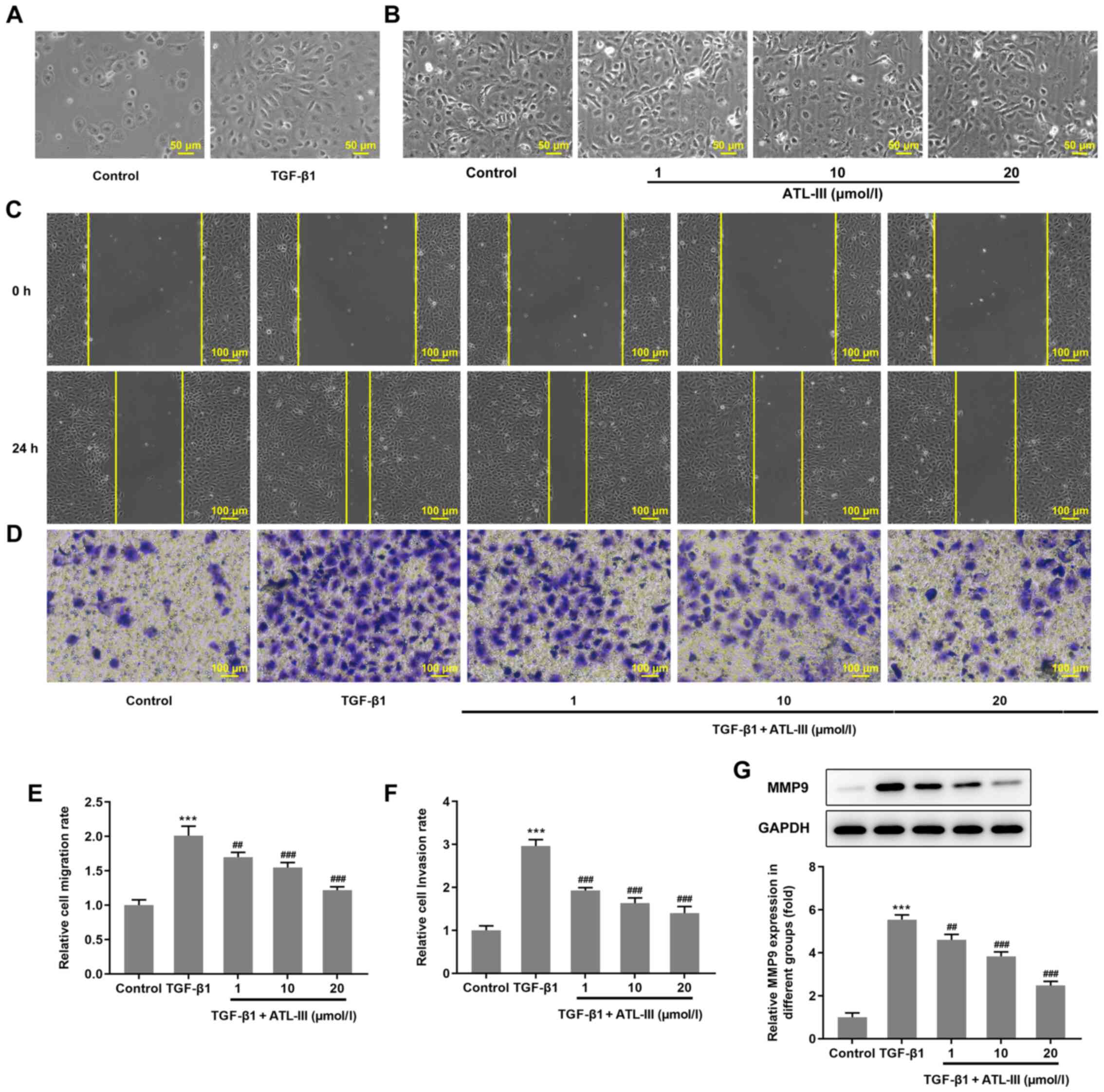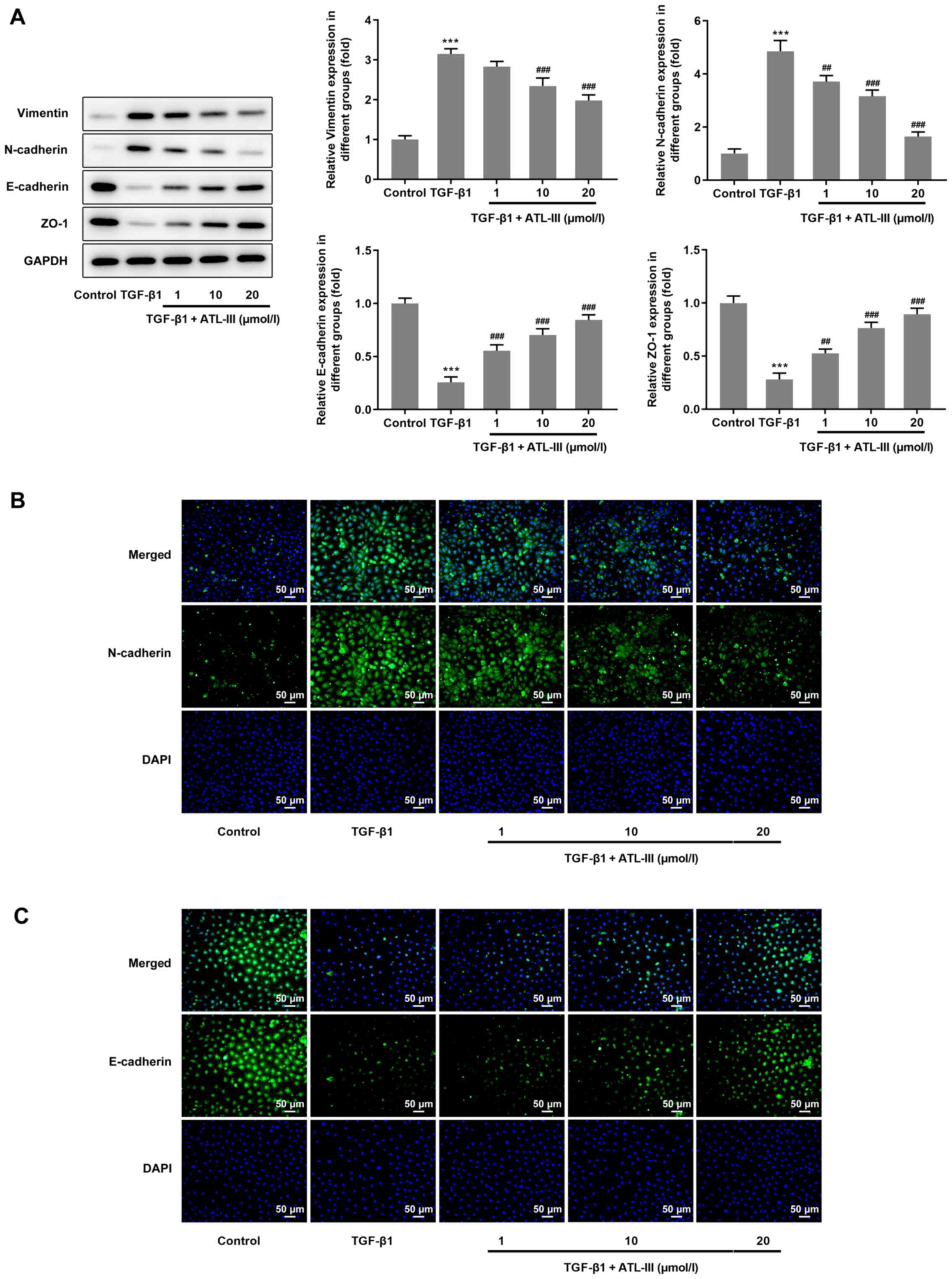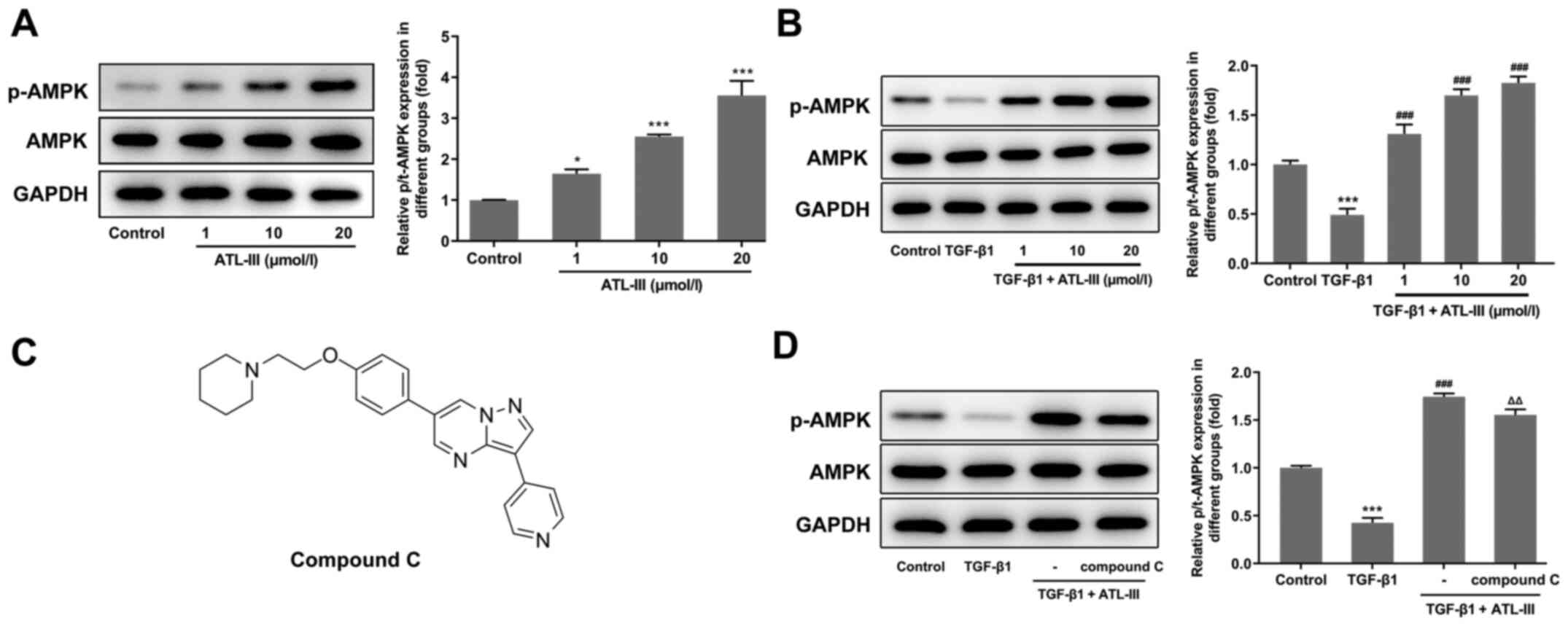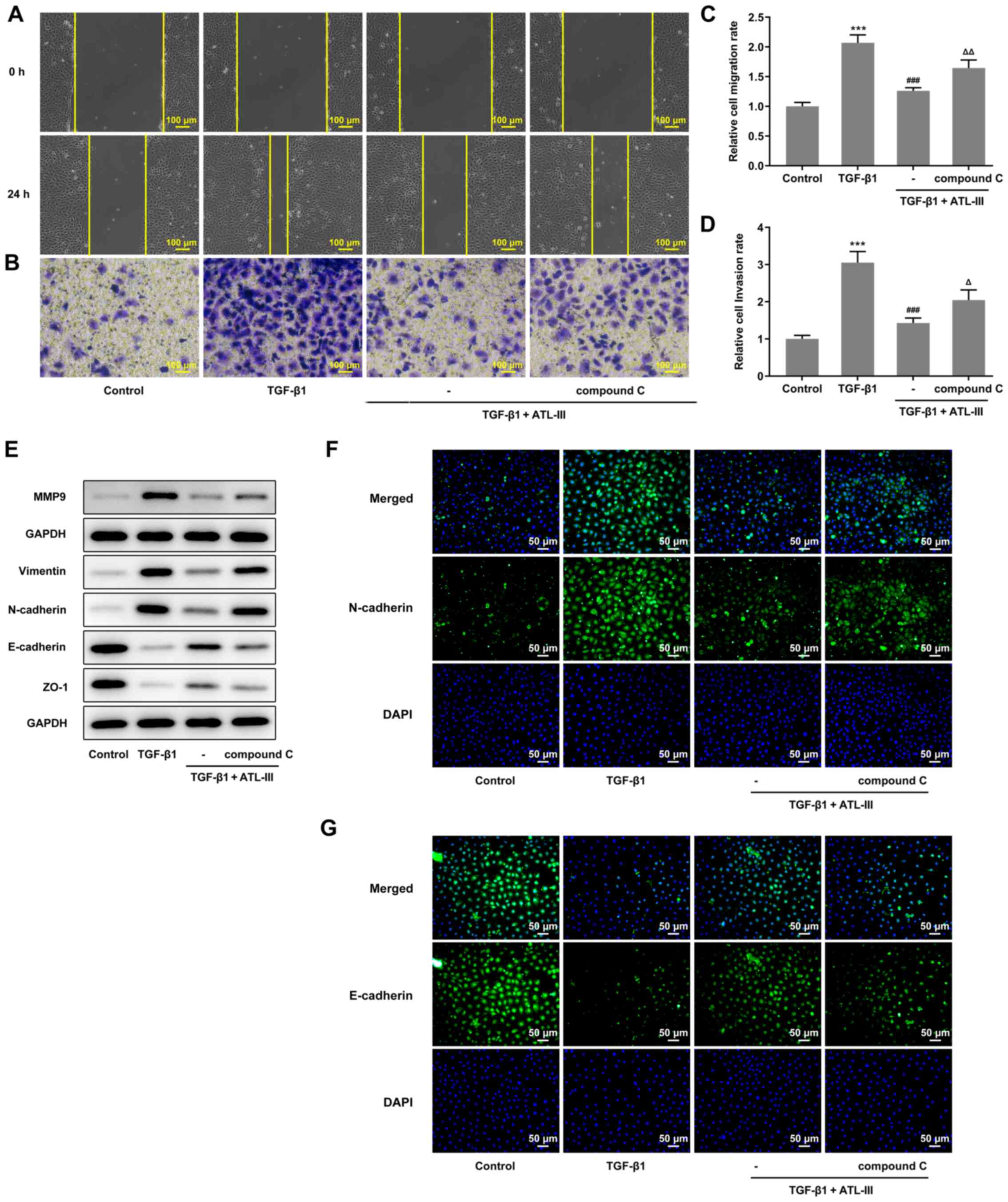|
1
|
Rockey DC, Bell PD and Hill JA: Fibrosis -
a common pathway to organ injury and failure. N Engl J Med.
372:1138–1149. 2015. View Article : Google Scholar : PubMed/NCBI
|
|
2
|
Rieder F, Fiocchi C and Rogler G:
Mechanisms, management, and treatment of fibrosis in patients with
inflammatory bowel diseases. Gastroenterology. 152:340–350.e6.
2017. View Article : Google Scholar : PubMed/NCBI
|
|
3
|
Sicilia B, Arias L, Hontoria G, García N,
Badia E and Gomollón F: Are steroids still useful in
immunosuppressed patients with inflammatory bowel disease? A
retrospective, population-based study. Front Med (Lausanne).
8:6516852021. View Article : Google Scholar : PubMed/NCBI
|
|
4
|
Rutgeerts P, Geboes K, Vantrappen G,
Kerremans R, Coenegrachts JL and Coremans G: Natural history of
recurrent Crohn's disease at the ileocolonic anastomosis after
curative surgery. Gut. 25:665–672. 1984. View Article : Google Scholar : PubMed/NCBI
|
|
5
|
Freeman HJ: Natural history and clinical
behavior of Crohn's disease extending beyond two decades. J Clin
Gastroenterol. 37:216–219. 2003. View Article : Google Scholar : PubMed/NCBI
|
|
6
|
Mao R, Chen BL, He Y, Cui Y, Zeng ZR and
Chen MH: Factors associated with progression to surgery in Crohn's
disease patients with endoscopic stricture. Endoscopy. 46:956–962.
2014. View Article : Google Scholar : PubMed/NCBI
|
|
7
|
Froehlich F, Juillerat P, Mottet C, Pittet
V, Felley C, Vader JP, Gonvers JJ and Michetti P: Fibrostenotic
Crohn's disease. Digestion. 76:113–115. 2007. View Article : Google Scholar : PubMed/NCBI
|
|
8
|
Masaki T, Kishiki T, Kojima K, Asou N,
Beniya A and Matsuoka H: Recent trends (2016–2017) in the treatment
of inflammatory bowel disease. Ann Gastroenterol Surg. 2:282–288.
2018. View Article : Google Scholar : PubMed/NCBI
|
|
9
|
Kelsen JR, Russo P and Sullivan KE:
Early-Onset Inflammatory Bowel Disease. Immunol Allergy Clin North
Am. 39:63–79. 2019. View Article : Google Scholar : PubMed/NCBI
|
|
10
|
Mentella MC, Scaldaferri F, Pizzoferrato
M, Gasbarrini A and Miggiano GA: Nutrition, IBD and Gut Microbiota:
A Review. Nutrients. 12:122020. View Article : Google Scholar
|
|
11
|
Ahluwalia B, Moraes L, Magnusson MK and
Öhman L: Immunopathogenesis of inflammatory bowel disease and
mechanisms of biological therapies. Scand J Gastroenterol.
53:379–389. 2018. View Article : Google Scholar : PubMed/NCBI
|
|
12
|
Chapman TP, Gomes CF, Louis E, Colombel JF
and Satsangi J: De-escalation of immunomodulator and biological
therapy in inflammatory bowel disease. Lancet Gastroenterol
Hepatol. 5:63–79. 2020. View Article : Google Scholar : PubMed/NCBI
|
|
13
|
Fuller MK: Pediatric inflammatory bowel
disease: Special considerations. Surg Clin North Am. 99:1177–1183.
2019. View Article : Google Scholar : PubMed/NCBI
|
|
14
|
Colombel JF, D'haens G, Lee WJ, Petersson
J and Panaccione R: Outcomes and strategies to support a
treat-to-target approach in inflammatory bowel disease: A
Systematic Review. J Crohn's Colitis. 14:254–266. 2020. View Article : Google Scholar : PubMed/NCBI
|
|
15
|
Cosnes J, Nion-Larmurier I, Beaugerie L,
Afchain P, Tiret E and Gendre JP: Impact of the increasing use of
immunosuppressants in Crohn's disease on the need for intestinal
surgery. Gut. 54:237–241. 2005. View Article : Google Scholar : PubMed/NCBI
|
|
16
|
Speca S, Giusti I, Rieder F and Latella G:
Cellular and molecular mechanisms of intestinal fibrosis. World J
Gastroenterol. 18:3635–3661. 2012. View Article : Google Scholar : PubMed/NCBI
|
|
17
|
Rieder F and Fiocchi C: Intestinal
fibrosis in IBD - a dynamic, multifactorial process. Nat Rev
Gastroenterol Hepatol. 6:228–235. 2009. View Article : Google Scholar : PubMed/NCBI
|
|
18
|
Holvoet T, Devriese S, Castermans K,
Boland S, Leysen D, Vandewynckel YP, Devisscher L, Van den Bossche
L, Van Welden S, Dullaers M, et al: Treatment of intestinal
fibrosis in experimental inflammatory bowel disease by the
pleiotropic actions of a local rho kinase inhibitor.
Gastroenterology. 153:1054–1067. 2017. View Article : Google Scholar : PubMed/NCBI
|
|
19
|
Zhang N, Liu C, Sun TM, Ran XK, Kang TG
and Dou DQ: Two new compounds from Atractylodes macrocephala
with neuroprotective activity. J Asian Nat Prod Res. 19:35–41.
2017. View Article : Google Scholar : PubMed/NCBI
|
|
20
|
Zhao H, Ji ZH, Liu C and Yu XY:
Neuroprotection and mechanisms of atractylenolide III in preventing
learning and memory impairment induced by chronic high-dose
homocysteine administration in rats. Neuroscience. 290:485–491.
2015. View Article : Google Scholar : PubMed/NCBI
|
|
21
|
Kang TH, Han NR, Kim HM and Jeong HJ:
Blockade of IL-6 secretion pathway by the sesquiterpenoid
atractylenolide III. J Nat Prod. 74:223–227. 2011. View Article : Google Scholar : PubMed/NCBI
|
|
22
|
Zhou Y, Huang S, Wu F, Zheng Q, Zhang F,
Luo Y and Jian X: Atractylenolide III reduces depressive- and
anxiogenic-like behaviors in rat depression models. Neurosci Lett.
759:1360502021. View Article : Google Scholar : PubMed/NCBI
|
|
23
|
Wang M, Hu R, Wang Y, Liu L, You H, Zhang
J, Wu X, Pei T, Wang F, Lu L, et al: Atractylenolide III attenuates
muscle wasting in chronic kidney disease via the oxidative
stress-mediated PI3K/AKT/mTOR pathway. Oxid Med Cell Longev.
2019:18754712019.PubMed/NCBI
|
|
24
|
Huai B and Ding J: Atractylenolide III
attenuates bleomycin-induced experimental pulmonary fibrosis and
oxidative stress in rat model via Nrf2/NQO1/HO-1 pathway
activation. Immunopharmacol Immunotoxicol. 42:436–444. 2020.
View Article : Google Scholar : PubMed/NCBI
|
|
25
|
Fu J, Ke X, Tan S, Liu T, Wang S, Ma J and
Lu H: The natural compound codonolactone attenuates TGF-β1-mediated
epithelial-to-mesenchymal transition and motility of breast cancer
cells. Oncol Rep. 35:117–126. 2016. View Article : Google Scholar : PubMed/NCBI
|
|
26
|
Song MY, Jung HW, Kang SY and Park YK:
Atractylenolide III enhances energy metabolism by increasing the
SIRT-1 and PGC1α expression with AMPK phosphorylation in C2C12
mouse skeletal muscle cells. Biol Pharm Bull. 40:339–344. 2017.
View Article : Google Scholar : PubMed/NCBI
|
|
27
|
Li N, Wang Z, Sun T, Lei Y, Liu X and Li
Z: Apigenin alleviates renal fibroblast activation through AMPK and
ERK signaling pathways in vitro. Curr Pharm Biotechnol.
21:1107–1118. 2020. View Article : Google Scholar : PubMed/NCBI
|
|
28
|
Yang JY, Tao LJ, Liu B, You XY, Zhang CF,
Xie HF and Li RS: Wedelolactone attenuates pulmonary fibrosis
partly through activating AMPK and regulating Raf-MAPKs signaling
pathway. Front Pharmacol. 10:1512019. View Article : Google Scholar : PubMed/NCBI
|
|
29
|
Shi J, Sun S, Liao Y, Tang J, Xu X, Qin B,
Qin C, Peng L, Luo M, Bai L, et al: Advanced oxidation protein
products induce G1 phase arrest in intestinal epithelial cells via
a RAGE/CD36-JNK-p27kip1 mediated pathway. Redox Biol.
25:1011962019. View Article : Google Scholar : PubMed/NCBI
|
|
30
|
Yang BL, Zhu P, Li YR, Xu MM, Wang H, Qiao
LC, Xu HX and Chen HJ: Total flavone of Abelmoschus manihot
suppresses epithelial-mesenchymal transition via interfering
transforming growth factor-β1 signaling in Crohn's disease
intestinal fibrosis. World J Gastroenterol. 24:3414–3425. 2018.
View Article : Google Scholar : PubMed/NCBI
|
|
31
|
Zhang HJ, Zhang YN, Zhou H, Guan L, Li Y
and Sun MJ: IL-17A promotes initiation and development of
intestinal fibrosis through EMT. Dig Dis Sci. 63:2898–2909. 2018.
View Article : Google Scholar : PubMed/NCBI
|
|
32
|
Gong WX, Zhou YZ, Qin XM and Du GH:
Involvement of mitochondrial apoptotic pathway and MAPKs/NF-κB
inflammatory pathway in the neuroprotective effect of
atractylenolide III in corticosterone-induced PC12 cells. Chin J
Nat Med. 17:264–274. 2019.PubMed/NCBI
|
|
33
|
Greenburg G and Hay ED: Epithelia
suspended in collagen gels can lose polarity and express
characteristics of migrating mesenchymal cells. J Cell Biol.
95:333–339. 1982. View Article : Google Scholar : PubMed/NCBI
|
|
34
|
López-Novoa JM and Nieto MA: Inflammation
and EMT: An alliance towards organ fibrosis and cancer progression.
EMBO Mol Med. 1:303–314. 2009. View Article : Google Scholar : PubMed/NCBI
|
|
35
|
Zhang E, Liu S, Xu Z, Huang S, Tan X, Sun
C and Lu L: Pituitary tumor-transforming gene 1 (PTTG1) is
overexpressed in oral squamous cell carcinoma (OSCC) and promotes
migration, invasion and epithelial-mesenchymal transition (EMT) in
SCC15 cells. Tumour Biol. 35:8801–8811. 2014. View Article : Google Scholar : PubMed/NCBI
|
|
36
|
Aiello NM, Maddipati R, Norgard RJ, Balli
D, Li J, Yuan S, Yamazoe T, Black T, Sahmoud A, Furth EE, et al:
EMT subtype influences epithelial plasticity and mode of cell
migration. Dev Cell. 45:681–695.e4. 2018. View Article : Google Scholar : PubMed/NCBI
|
|
37
|
Flier SN, Tanjore H, Kokkotou EG, Sugimoto
H, Zeisberg M and Kalluri R: Identification of epithelial to
mesenchymal transition as a novel source of fibroblasts in
intestinal fibrosis. J Biol Chem. 285:20202–20212. 2010. View Article : Google Scholar : PubMed/NCBI
|
|
38
|
Mege D and Panis Y: Unmet therapeutic
needs: Focus on intestinal fibrosis surgical approach: Resection,
strictureplasty and others. Dig Dis. 35:38–44. 2017. View Article : Google Scholar : PubMed/NCBI
|
|
39
|
Noble PW, Albera C, Bradford WZ, Costabel
U, Glassberg MK, Kardatzke D, King TE Jr, Lancaster L, Sahn SA,
Szwarcberg J, et al CAPACITY Study Group, : Pirfenidone in patients
with idiopathic pulmonary fibrosis (CAPACITY): Two randomised
trials. Lancet. 377:1760–1769. 2011. View Article : Google Scholar : PubMed/NCBI
|
|
40
|
Kuhn A, Haust M, Ruland V, Weber R, Verde
P, Felder G, Ohmann C, Gensch K and Ruzicka T: Effect of bosentan
on skin fibrosis in patients with systemic sclerosis: A
prospective, open-label, non-comparative trial. Rheumatology
(Oxford). 49:1336–1345. 2010. View Article : Google Scholar : PubMed/NCBI
|
|
41
|
King TE Jr, Brown KK, Raghu G, du Bois RM,
Lynch DA, Martinez F, Valeyre D, Leconte I, Morganti A, Roux S, et
al: BUILD-3: A randomized, controlled trial of bosentan in
idiopathic pulmonary fibrosis. Am J Respir Crit Care Med.
184:92–99. 2011. View Article : Google Scholar : PubMed/NCBI
|
|
42
|
Munger JS, Harpel JG, Gleizes PE, Mazzieri
R, Nunes I and Rifkin DB: Latent transforming growth factor-beta:
Structural features and mechanisms of activation. Kidney Int.
51:1376–1382. 1997. View Article : Google Scholar : PubMed/NCBI
|
|
43
|
Vallance BA, Gunawan MI, Hewlett B, Bercik
P, Van Kampen C, Galeazzi F, Sime PJ, Gauldie J and Collins SM:
TGF-beta1 gene transfer to the mouse colon leads to intestinal
fibrosis. Am J Physiol Gastrointest Liver Physiol. 289:G116–G128.
2005. View Article : Google Scholar : PubMed/NCBI
|
|
44
|
Salminen A and Kaarniranta K:
AMP-activated protein kinase (AMPK) controls the aging process via
an integrated signaling network. Ageing Res Rev. 11:230–241. 2012.
View Article : Google Scholar : PubMed/NCBI
|
|
45
|
Morikawa M, Derynck R and Miyazono K:
TGF-β and the TGF-β family: Context-dependent roles in cell and
tissue physiology. Cold Spring Harb Perspect Biol. 8:82016.
View Article : Google Scholar : PubMed/NCBI
|
|
46
|
Baruch RR, Melinscak H, Lo J, Liu Y, Yeung
O and Hurta RA: Altered matrix metalloproteinase expression
associated with oncogene-mediated cellular transformation and
metastasis formation. Cell Biol Int. 25:411–420. 2001. View Article : Google Scholar : PubMed/NCBI
|
|
47
|
Wong SHM, Fang CM, Chuah LH, Leong CO and
Ngai SC: E-cadherin: Its dysregulation in carcinogenesis and
clinical implications. Crit Rev Oncol Hematol. 121:11–22. 2018.
View Article : Google Scholar : PubMed/NCBI
|
|
48
|
Hisada M, Hiranuma M, Nakashima M, Goda N,
Tenno T and Hiroaki H: High dose of baicalin or baicalein can
reduce tight junction integrity by partly targeting the first PDZ
domain of zonula occludens-1 (ZO-1). Eur J Pharmacol.
887:1734362020. View Article : Google Scholar : PubMed/NCBI
|
|
49
|
Zhang N: Vimentin and tumor diagnosis.
Zhonghua Bing Li Xue Za Zhi. 19:122–124. 1990.(In Chinese).
PubMed/NCBI
|
|
50
|
Hardie DG, Ross FA and Hawley SA: AMPK: A
nutrient and energy sensor that maintains energy homeostasis. Nat
Rev Mol Cell Biol. 13:251–262. 2012. View Article : Google Scholar : PubMed/NCBI
|
|
51
|
Hecker L, Logsdon NJ, Kurundkar D,
Kurundkar A, Bernard K, Hock T, Meldrum E, Sanders YY and
Thannickal VJ: Reversal of persistent fibrosis in aging by
targeting Nox4-Nrf2 redox imbalance. Sci Transl Med. 6:231ra472014.
View Article : Google Scholar : PubMed/NCBI
|
|
52
|
Burkewitz K, Zhang Y and Mair WB: AMPK at
the nexus of energetics and aging. Cell Metab. 20:10–25. 2014.
View Article : Google Scholar : PubMed/NCBI
|
|
53
|
Park CS, Bang BR, Kwon HS, Moon KA, Kim
TB, Lee KY, Moon HB and Cho YS: Metformin reduces airway
inflammation and remodeling via activation of AMP-activated protein
kinase. Biochem Pharmacol. 84:1660–1670. 2012. View Article : Google Scholar : PubMed/NCBI
|
|
54
|
Liu Z, Bone N, Jiang S, Park DW, Tadie JM,
Deshane J, Rodriguez CA, Pittet JF, Abraham E and Zmijewski JW:
AMP-activated protein kinase and glycogen synthase kinase 3β
modulate the severity of sepsis-induced lung injury. Mol Med.
21:937–950. 2016. View Article : Google Scholar : PubMed/NCBI
|
|
55
|
Sato N, Takasaka N, Yoshida M, Tsubouchi
K, Minagawa S, Araya J, Saito N, Fujita Y, Kurita Y, Kobayashi K,
et al: Metformin attenuates lung fibrosis development via NOX4
suppression. Respir Res. 17:1072016. View Article : Google Scholar : PubMed/NCBI
|
|
56
|
Rangarajan S, Bone NB, Zmijewska AA, Jiang
S, Park DW, Bernard K, Locy ML, Ravi S, Deshane J, Mannon RB, et
al: Metformin reverses established lung fibrosis in a bleomycin
model. Nat Med. 24:1121–1127. 2018. View Article : Google Scholar : PubMed/NCBI
|















